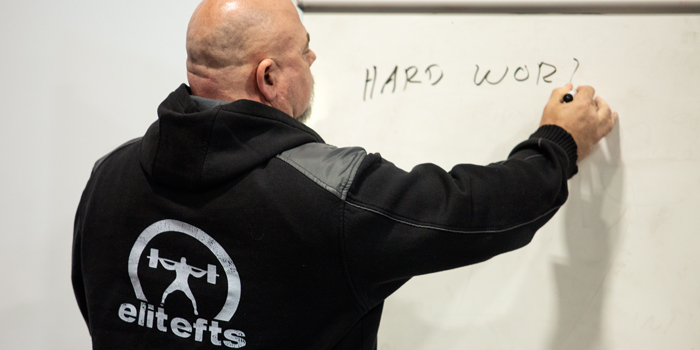
This past month, I was able to take an opportunity to attend a seminar, Be Activated, run by a South African physiotherapist named Douglas Heel. Be Activated is the system from which the course I currently teach, Reflexive Performance Reset, was founded upon, so this was not only a huge opportunity for myself to better understand the body, but also to build my skillset for the benefit of my clients and attendees at RPR seminars.
The seminar itself was extraordinary. Extraordinary is a very fitting word because the biggest mistake I made going into that seminar was thinking that because I have utilized and instructed RPR for three years that I had any damn clue of what this four-day, 50-hour seminar was going to be like. The information was enlightening, but the experience was completely flooring. I thought I understood a thing or two about the body and the nervous system, but I quickly realized I didn’t know shit.
RECENT: Advice for High School Linemen
There are many individuals from whom I have learned. Some a little, some a lot. Some have taught me what to do, others what not to do. Most of these people are not whom I would consider experts, mentors, or masters at their craft.
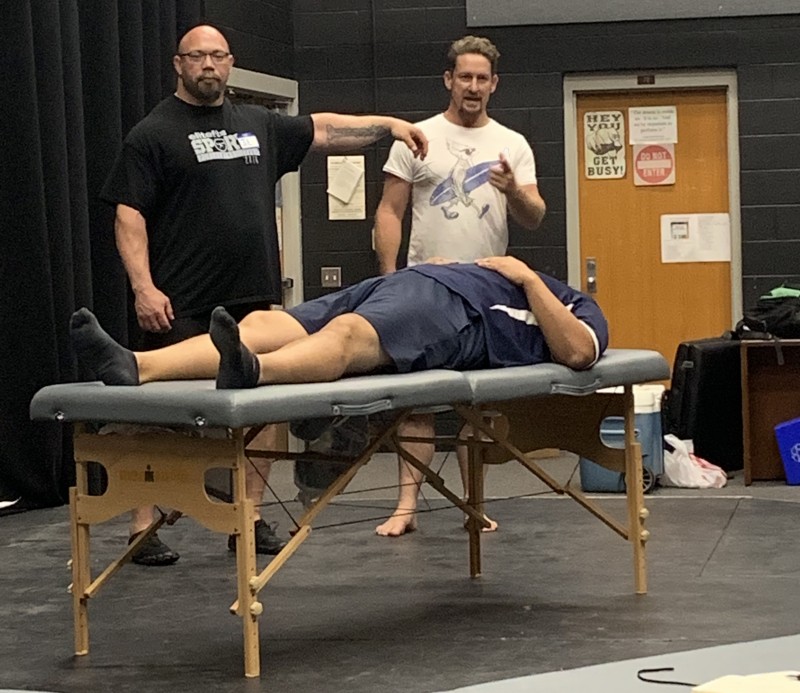
As a side note, in our current world of misusing and watering down our language, I’m finding it hard to think of a word that has been devalued in the strength and healthcare industry as much as the word “expert.” Luckily, “mentor” and “mastery” have not taken quite the same hit.
Learning and thought are much more often stimulated by observation and processing of the information that one experiences, rather than sitting in a room and being told which answer is right and wrong. Therefore, learning can occur anywhere and from anyone.
The brain is very good at recognizing patterns. This improves our ability to learn and understand our world, and also predict future outcomes based on past experiences. This pattern building helps recognize and develop the rules of our world and guide decision-making. For example, the cyclic pattern of gas prices allows one to predict within a window of certainty when prices will be high and low and will influence the frugal spender’s action of either topping off the tank or holding off a few extra days.
Because our brains are good at recognizing patterns, it is also extremely good at seeing outliers that break apart from the pattern. This is why it’s hard to detect slow, subtle movements, but a bright, flashy, or sudden object in our vision is highly detectable. It’s also why advertisers in business are always looking for a way to stand out and grab your attention in a new and unique way so as to stamp the image of their product into your cerebral cortex.
Both examples are not only great examples of how the brain operates but also how your physiology is tied directly into the world you live, how you perceive that world, and how you make decisions.
Now, here’s the interesting thing and a great segue from my rant/your boredom to the topic at hand. In the world, there are two types of people: Those who allow the world to constrict and shape their understanding, and those who use their understanding to shape and expand the world. This is what separates ordinary from extraordinary, impossibility from possibility, and “I can’t” from “why can’t I?”
Learning is not a process of gathering known information, but rather, the constant process of shedding light on what you don’t know, accepting that you don’t know, and then exploring this new space to gather a better understanding of yourself and your interactions with the world.
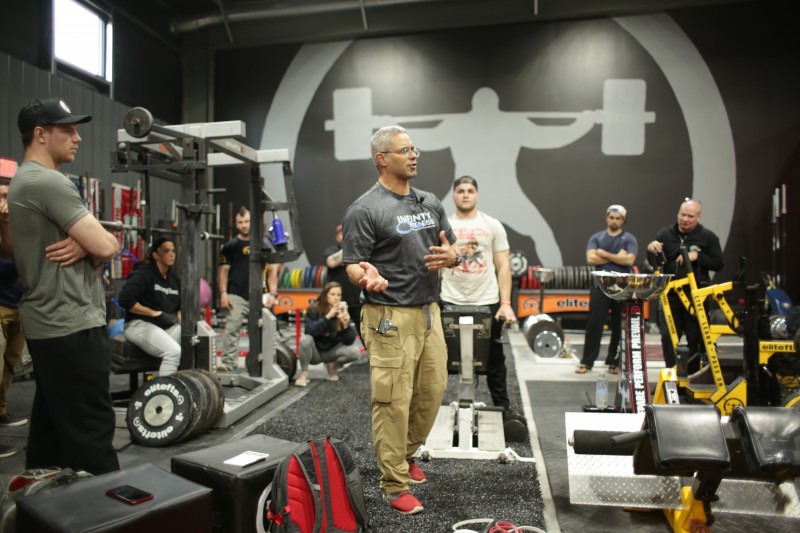
Now if you can’t tell, I’m someone who is constantly in my own head — or perhaps up my own ass… Admittedly, those are both highly probable scenarios. So, during those four days in the Be Activated seminar, I found myself thinking about the similar characteristics of those who I believe have achieved mastery and why they seem to break away from the standard.
They Embrace Complexity
From the very beginning of our education, we are taught that there are specific rules to follow as well as right and wrong answers. We are told there’s a correct way to think and an incorrect way to think, and we are led to believe everything we need to know will be taught to us. This makes it hard for many to accept the complexities within their world and profession. We are often amazed at how the expert is able to navigate problems and chaos so simply and come up with a solution. How do they always know the right test, exercise, solution, or thing to say?
Most individuals are frustrated by complexity and look to the experts the same way that a child looks at a teacher. They expect a clear, concise answer to their problems. What is right and what is wrong? What is good and what is bad? They are looking for permission or a roadmap to success as fast as possible.
WATCH: Should Beginners Train with Bands?
Instead of asking for help thinking through one particular problem, they expect a one-size-fits-all answer for ALL of their problems. What they end up finding is that in most cases, the answer they receive is, “It depends.” Most scenarios have a multitude of factors that make a simple, broad stroke answer nearly impossible.
Now, it is said that if you cannot explain or teach something simply, you don’t truly understand it. This is why the expert often looks to aid in simplifying the learning process itself. They use stories and concepts to build a framework from which a person can begin to think on their own. This is much different than simply giving out answers. After all, how boring would the world be if it were so simple that you knew all the answers and possibilities?
They Are Secure With the Unknown
One of the biggest differences between a novice, intermediate, and master/expert is how they view the unknown. For many, the possibility of failure and the unknown are paralyzing. These are the fears that keep people from opening businesses, picking up a book, or opening up a discussion with others. This stifles progress and is the difference between the “I can’t” and the “why not” attitudes. These situations are not pleasant, but navigating the unknown is the only way to learn and improve yourself.
Those who accomplish a level of mastery still often freely admit their flaws and their status as a student of the world. Rather than fearing public discovery that they don’t know everything, the expert freely admits when they aren’t sure.
If learning is the ongoing process of discovering the unknown and exploring it, being able to recognize what you don’t know opens the possibility of discovering what you don’t know you don’t know.
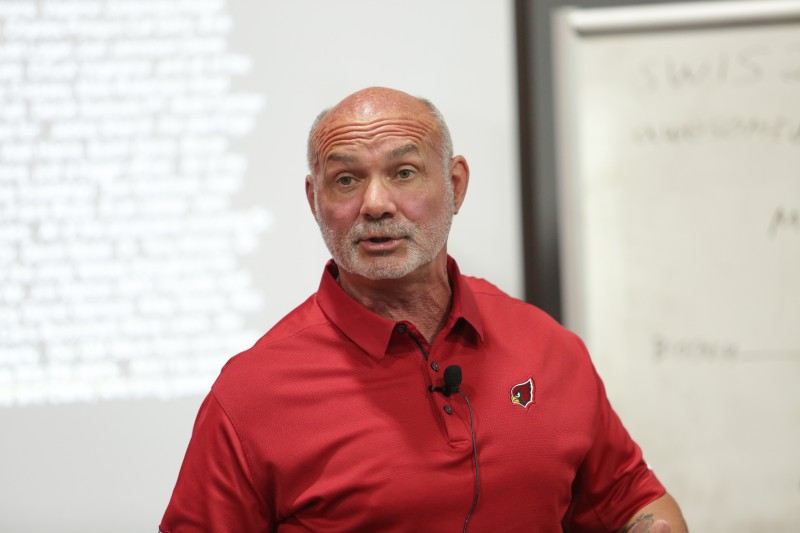
They Hold A Standard
Mastery requires tough skin and being able to stand up for what you know to be right. After all, a trademark of the expert is that they tend to push back against the status quo and stand strong against pressure to give into others when their thoughts are challenged. This doesn’t mean being stubborn for no good reason or going around telling people they are wrong. Rather, the expert has a level of respect for maintaining a standard and maintaining truth that goes beyond worrying about someone’s feelings, especially if the information can help them.
Holding a standard also means approaching conversation with those who disagree cordially and constructively. Rather than belittling or berating the opponent to elevate their position, the expert presents his case and engages critically. This creates a discussion rather than an argument.
In an argument, there is only one outcome – in order for me to be right, you must be wrong (and vice versa). This encourages a no-holds-barred approach rather than presenting a point of view and facts. In a discussion, both parties may end up agreeing that they just don’t see eye to eye, that they are talking about the same thing with only slight differences, or find a new point of view altogether. This creates growth and understanding.
RELATED: 5 Things Beginner and Intermediate Lifters Should Understand
Contrary to popular belief, holding a standard presents more opportunity to change someone’s mind and allows the possibility of having your mind changed as well. For most experts, the standards that they hold the highest are truth and finding the best way to accomplish a task or understand the world.
In the strength industry, that means finding a method that works and is efficient and safe. Period. Because this is the standard, these individuals are constantly searching and looking for ways of improving their systems. This can only be accomplished by being wrong.
But the expert does not look at it this way. They look at it as growth — as part of the process. Because the process — the standard — dictates that you are only loyal to finding the best outcome with the current available knowledge. That means that if next week, new information is discovered and suggests a new way of doing things, the master begins tinkering almost immediately. He tests his systems on a regular basis looking to find holes that can be improved or reaffirm the effectiveness of his methods.
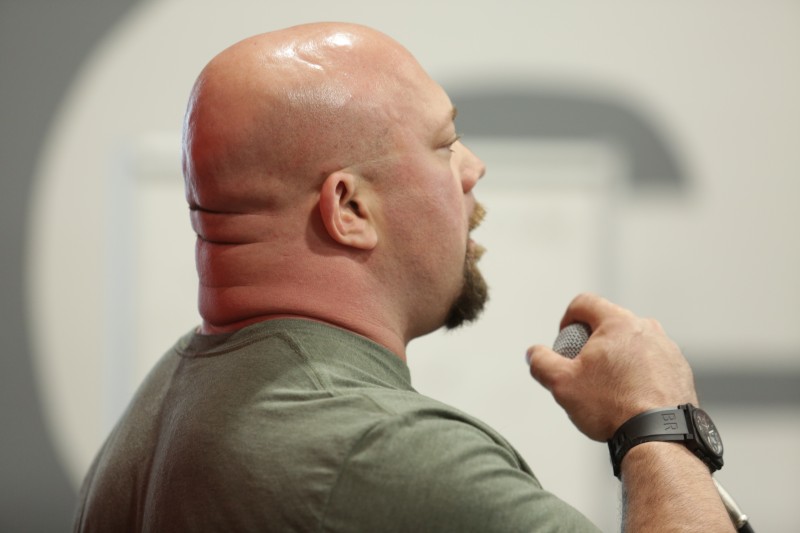
For those who are insecure in their knowledge, the philosophy and standards that they hold are rooted in emotion. The thought process becomes, “I’m right, and anything that threatens me being correct is seen as an attack on not just my philosophy but to my actual self.”
A classic example of this is the high school football coach who, rather than seeking help for their weight program, sticks to the same template they’ve been using for the last 20 years. Even if someone is able to show him a better, more efficient program, he fears change, as that change would involve leaving his program and the possibility as being seen as inferior both intellectually and as a person.
In reality, holding onto this program does more to ruin his credibility. By utilizing a program that is not based upon the standard of best possible results, his players are left weaker and more vulnerable to injury. The team struggles to win, and distrust mounts between the players and staff.
Having standards — demanding the best, most efficient, safest method possible with the current available knowledge — keeps the expert moving forward while the novice stays put.
They Recognize The Accomplishments of Others
Although the expert is not without ego, they often have the humility to recognize those from whom they learned from and those who helped them along the way. Whether it be negatively or positively, we are all influenced by someone. Before becoming an expert, you have to be an intermediate, and before becoming an intermediate, you must begin from the very beginning as a novice.
READ MORE: What It Means to "Pass On"
A true expert recognizes the path they took to get to where they are and the people who helped them get there. It is also often why the expert tries to teach and mentor others, because were it not for someone to help them along the way, they would have not made it.
Experts also often recognize the talents and intellectual property of those with whom they don’t agree with. Just because you don’t agree with everything someone does or says does not mean that you can’t respect them and some of their points of view. To the expert, if an individual is truly sharing the same goal of learning and discovery of answers and solutions to better the world, there is a level of respect and enjoyment toward them.










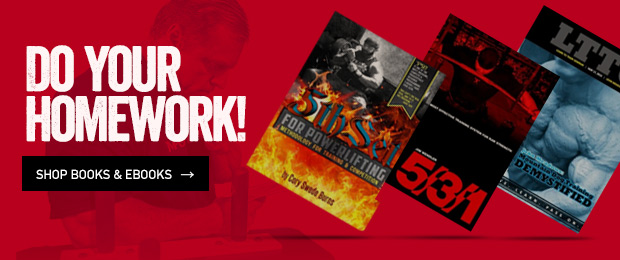
2 Comments